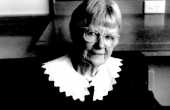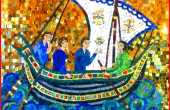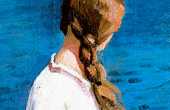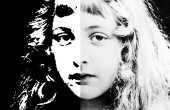Lydia Gore-Jones
I'm an academic, and a lover of literature.
Contributor I
- Plebian Penman
- Lurker
- Sharp-Eyed Citizen
- Well Read
- Article of the Month
- ?
- Articles
4 - Featured
4 - Comments
16
- Ext. Comments
9 - Processed
6 - Revisions
6
- Topics
3 - Topics Taken
1 - Notes
6
- Topics Proc.
6 - Topics Rev.
3
- Points
720 - Rank
195 - Score
336
Latest Articles
Latest Topics
Published | Can the Artificial Be Art?Artificial Intelligence has already caused changes in the way we conduct our lives. Will it change the way we make and perceive art? It has been predicted, for example, that AI will replace many jobs in the film industry. AI has been used in many types of writing and "artwork" already: legal and business documents, advertising, students' assignments …
|
Alice Munro - her mastery of the short story genreAny Alice Munro fans out there? It is due time to honour her memory with an article on her mastery of the short story genre. Your article could focus on one aspect of her story telling. For example: Her narrative techniques. Her characters. Her favourite themes. You could do a thematic or character study across the corpus of her works, or offer a literary analysis of one or two particular stories.
|
17th century poetry - the MetaphysicalsThe Metaphysicals refer to a loose collective of poets such as John Donne, George Herbert, Andrew Marvell, Abraham Cowley, Richard Crashaw and Henry Vaughan, who represent some of the highest achievements of the 17th-century English literature. A most conspicuous feature of their style can be described as using images concrete and tangible, richly appealing to human senses and emotions. The label, “Metaphysical,” was attached to them by later generations. “Metaphysical,” as a style label, refers to the so-called “figures of thought” marked by the use of conceits, witticism and paradoxes. But the term still fails to capture the ‘physical’ side of the Metaphysicals – that is, the corporeality, even fleshiness, in their using concrete images and metaphors on the one hand, and expressing sensational feelings and emotions on the other. How, then, do the ‘physical’ and the ‘metaphysical’ meet in 17th century Renaissance poetry? What makes the Metaphysicals 'metaphysical'? This topic can be explored either by studies of common characteristics of these poets' works or by close criticism of individual poets. |
Latest Comments
| Movies & Media as the Source of AI Phobia | |
Talking about adaptation of Tolkien’s world, I think there’s a crucial element that is lacking in the Rings of Power series. And that is, a story in the form of an adventure, a journey, a quest. Both the Lord of the Rings and Hobbit are greatly loved mainly because of the adventure. Everything unfolds as part of the protagonists’ encounters in their adventure. The readers also share their experience of the adventure. But that element is missing in the story of the new TV adaptations. | The Lord of the Rings: The Rings of Power is a Fascinating Case Study in the Challenges of Adaptation |
Thank you for this great article! I wish more comments were on the topic of this article, about the issue of adaptation — adaptation of literary work for television, a work of the past for a contemporary audience, etc.— and not on how they love or passionately hate the show. 😀 | The Lord of the Rings: The Rings of Power is a Fascinating Case Study in the Challenges of Adaptation |
That’s a lovely image, “burnished into a soft, many-sided glow”. 🙂 | To the Lighthouse and Virginia Woolf's Rebellion against the Traditional Novel |
Thank you kindly! | To the Lighthouse and Virginia Woolf's Rebellion against the Traditional Novel |
This is lovely writing! … although I haven’t seen any of these films. I can’t help but think that the theme of your article brought to surface a deep human instinct— the association of banishment and exile, forced or self afflicted, with transgression, pain and death. They are almost synonymous. | "The Ballad of Buster Scruggs" and the nature of Death |
Yes, they are all modernists, difficult but satisfying reads.😀 | To the Lighthouse and Virginia Woolf's Rebellion against the Traditional Novel |
I certainly agree! | To the Lighthouse and Virginia Woolf's Rebellion against the Traditional Novel |




Not only TV shows and movies about AI, I find the entire Sci-Fi fiction genre, both in books and film/TV, is overall marked by a pessimism about the future. Humans are both obsessed with new technology of the future and fearful of their own demise because of technology. I wonder what the hidden truth there is beneath that psychological paradox.